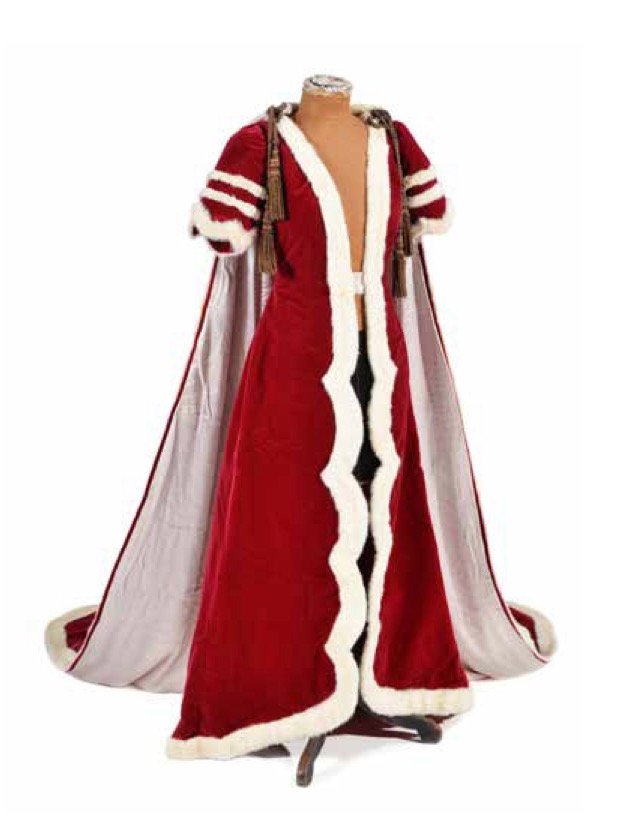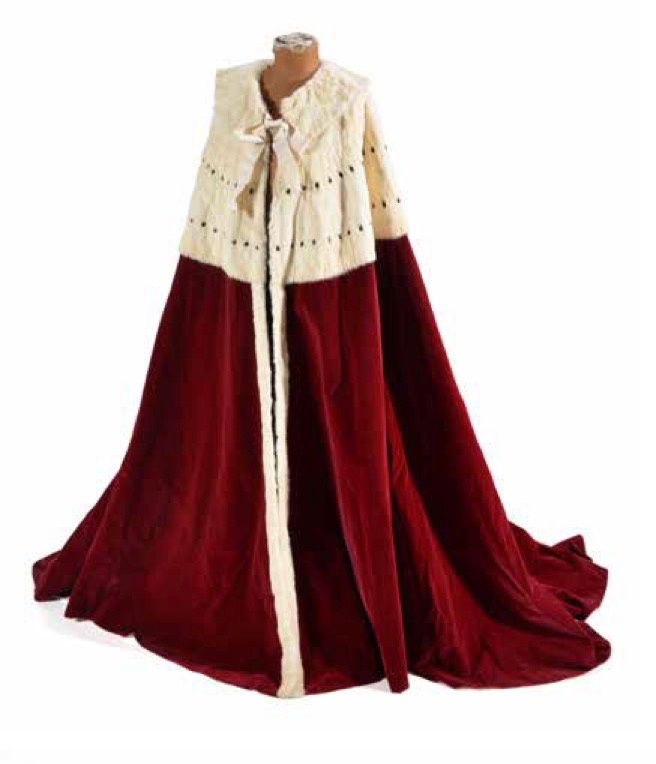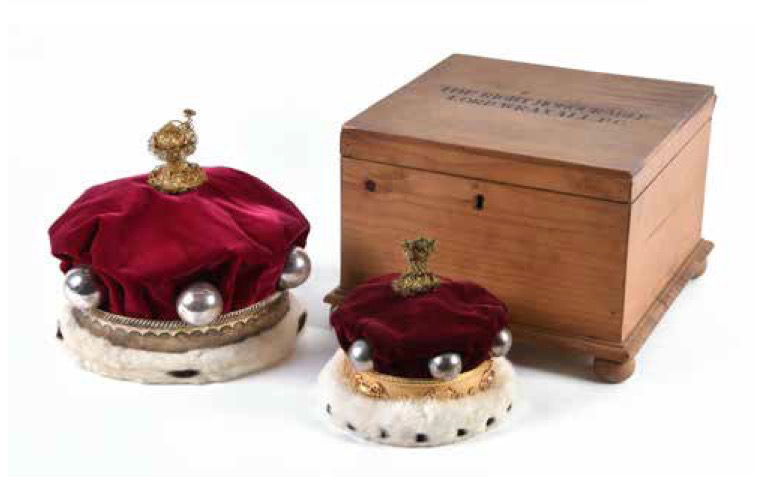Baronial Robes
Following the pageantry on our Queen’s Jubilee last month it seemed appropriate to share some images of the baronial robes of Baron and Baroness Wraxall, and the crowns that accompanied them.



After the death in 2017 of Eustace Gibbs, 3rd Baron Wraxall, the robes were auctioned by Dreweatts, together with many other family processions from his home at Oakley House in Suffolk. These photos come from that auction catalogue. Eustace succeeded to the title in 2001 on the death of his brother Richard, and the subsequent sale of Tyntesfield to the National Trust.
These robes were worn by Richard (George Richard Lawley Gibbs) 2nd Baron Wraxall and his mother Ursula, Baroness Wraxall, for the Coronation of Elizabeth II in 1952.
Richard and Eustace’s father, George Abraham Gibbs, grandson of William Gibbs of Tyntesfield, had been was raised to the peerage as Baron Wraxall, of Clyst St George, in the County of Devon, in 1928. Why it is recorded as Clyst St George beats me, since George lived at Tyntesfield which is adjacent to the village of Wraxall in Somerset.
However George was not the first baron in the Gibbs family; his cousin Henry Hucks Gibbs had been created Baron Aldenham in 1896, and Henry Huck’s 4th son Herbert Cokayne Gibbs was raised to the peerage as Baron Hunsdon of Hunsdon in 1923 (these combined in 1939).
George embarked on a military career and was appointed a captain in the Yeomanry regiment the North Somerset Yeomanry on 25 September 1895. Following the outbreak of the Second Boer War in late 1899 he volunteered for active service, and on 28 February 1900 was appointed a lieutenant in the Imperial Yeomanry, where he served in the 48th (North Somerset) Company in the 7th Battalion, body-guard to the commander in chief, Lord Roberts, in his campaign from Bloemfontein to Pretoria. He was later colonel of the North Somerset Yeomanry, and was appointed deputy lieutenant of Somerset in 1911. There is a great photo of 7 Gibbs Brothers and Cousins in North Somerset Yeomanry taken in 1911.
In 1906, George was elected Member of Parliament for Bristol West, a seat he would hold until 1928. He served as Parliamentary Private Secretary to the Colonial Secretary Walter Long, 1st Viscount Long (his father-in-law), and as a government whip from 1917 to 1921 in the coalition ministry of David Lloyd George. In 1921, he was appointed Treasurer of the Household, a post he continued to hold to 1928. George was sworn of the Privy Council in 1923.
George Abraham was born at Tyntesfield as the oldest of nine children (and a sister that died young) and there are many photos of the privileged peaceful upbringing that they had there preserved in 3 albums that Victoria let me scan: Album 1 1894 – 1914, Album 2 1891 – 1899, and Album 3 1897 – 1899.
Their peaceful life was dramatically interrupted by the outbreak of WW1 with 6 brothers going off to war serving with the cavalry in France and elsewhere, and one to never return; Captain Eustace Lyle Gibbs is buried in the war cemetery at Ypres.

Does the title not carry on after the death of Eustace?
The title has indeed carried on, but the grand houses and wealth are in the past.